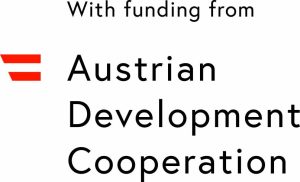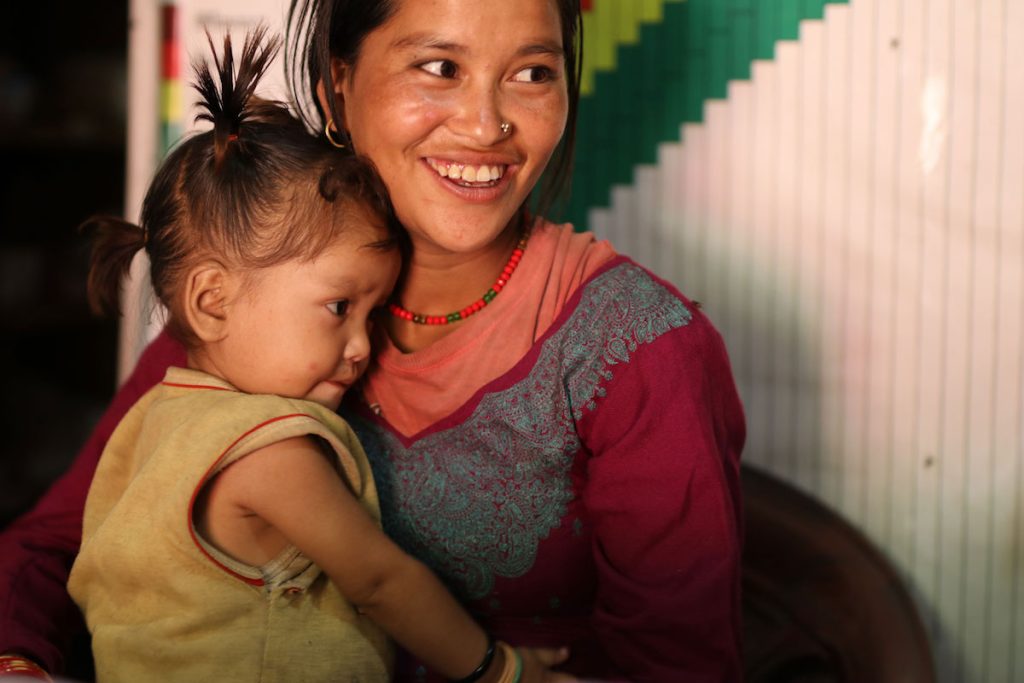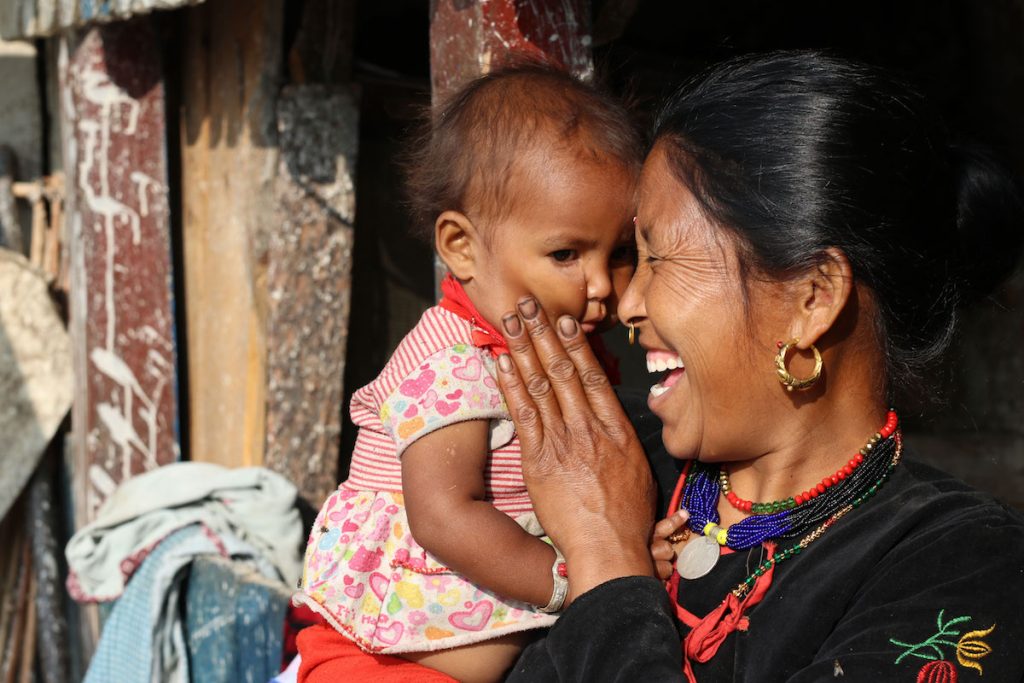Else Kröner-Fresenius Award for Development Work in Medicine 2017

Since 2019 with funding from the Austrian Development Agency (ADA)

Since Ocober 2019 with funding from Else Kröner-Fresenius-Stiftung (EKFS)
In the context of an integrated programme to improve nutrition and health in women and children in Western Nepal, the project aims to support government health services in Mugu District. It raises awareness of the right to healthcare and education in the population, and communities are encouraged to advocate for these rights themselves (e.g. demand the regular attendence of government health workers), thus empowering individuals and communities long-term. The project in Mugu was launched in March 2016 and serves a total population of approximately 15,000 people.
In March 2020, an interim report on project results in 5 locations was submitted to ADA. Also in March 2020, ADA audited the project at PHASE Nepal’s office in Kathmandu.
Improvement of healthcare, in particular maternal and child health, by employing two experienced and highly qualified Auxiliary Nurse Midwives per health post, providing all necessary medication and material, and supervision and mentoring. PHASE staff work within the Nepali government health posts to avoid the development of a non-sustainable parallel structure that would always depend on outside help or funds.

Awareness raising and health education, increase demand for and acceptance of services like pre and post natal care, or sanitation (toilets, handwashing), raise awareness of the importance of healthcare within the population, increase knowledge about healthy diets abd reduce hazardous traditions (e.g. menstrual exclusion of weomen).
Improving knowledge of governement health workers: training is important to PHASE: Its health staff regularly particpate in a biannual training in Kathmandu, is supervised by more experienced colleagues on a regular basis, and gets further training from British GP volunteers. In addition, PHASE conduct trainings in its project regions to include government health staff.

Overall, the intervention aims to improve the training and working environment of government employees over a period of 3-4 years in order to improve the quality of health care in the target communities in the long term.
The health intervention is part of a multidisciplinary programme that also includes literacy classes and girls empowerment workshops, as well as interventions on diversification and production of higher value food and market products for income generation.
The project has been running since 2016 and initial results show a significant increase in access to primary health care. In the next two years, we are planning further training and expansion of services, as well as, for example, purchases of diagnostic equipment, such as for the district hospital.
Nepal is a low income country with low growth and slow development; the country suffers from the consequences of a civil war, recent catastrophic earthquakes, structural poverty, inequality and deep-rooted forms of social exclusion.
In relation to Global Goals, there is a need for improvement: GG 2 (hunger): currently 30% of children in Nepal between 6 and 59 months are underweight; stunting affects 38% of under-fives, 11% suffer from emaciation. GG 3 (Health): Maternal mortality declined nationally but remains high (258) and only 58% of all births take place with professional assistance.
A study by DFID (2013) found that Central and Far West Nepal are the poorest regions nationally, with 81% of people living in chronic poverty (Nepal: 21-35%) and 64% extremely vulnerable (36-44%).
Mugu is one of the most remote districts (communities are usually more than a day’s walk from the road), the HDI here is extremely low by Nepalese standards, less than 10% of households enjoy food security all year round.
According to UNFCO (2013), 60% of children under 5 are short stature, up to 20% severely underweight, more than 25% malnourished; 33% of women of childbearing age are anaemic, about 20% underweight. 35% of women reported not receiving antenatal care in 2011, skilled birth attendance is rare.
Gender discrimination, child and teenage marriage and violence also remain major problems.
The National Health Strategy (Nepal Health Sector Strategy 2015-2020) focuses strongly on universal access to essential health services, especially in the hard-to-reach groups and regions, and reproductive health in particular. PHASE (working in neighbouring Bajura) identified Mugu as an extremely marginalised district and this expansion of the programme was welcomed by the district government and Ministry of Health.


